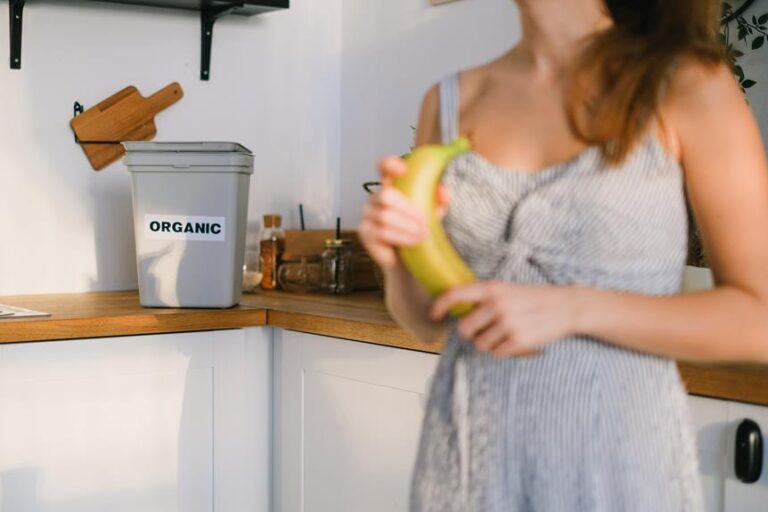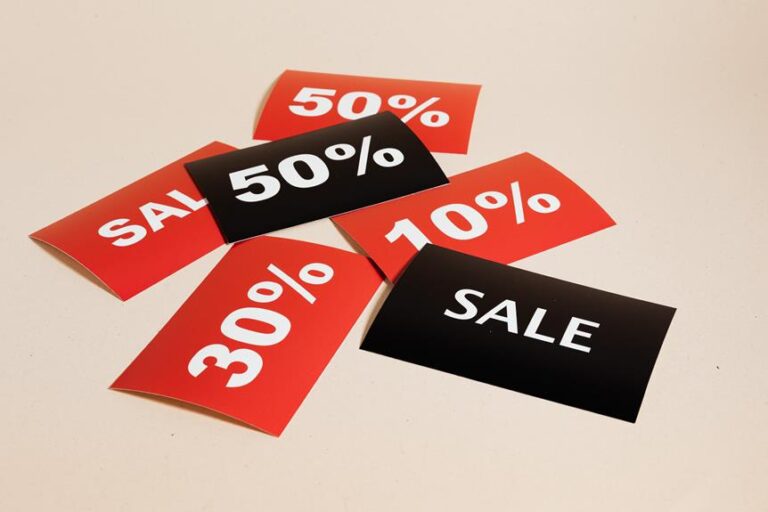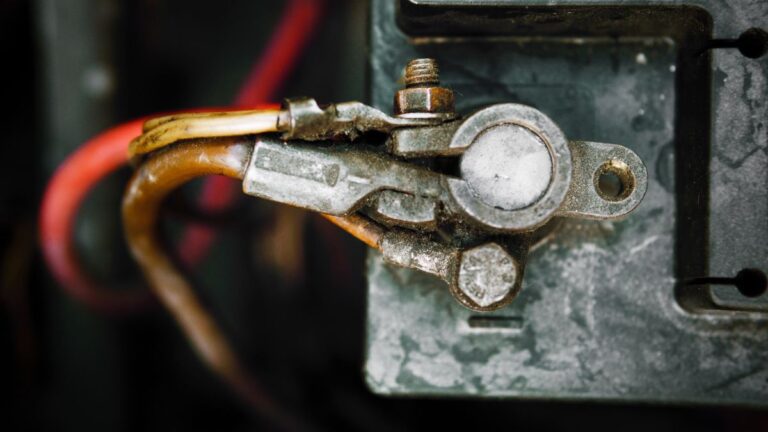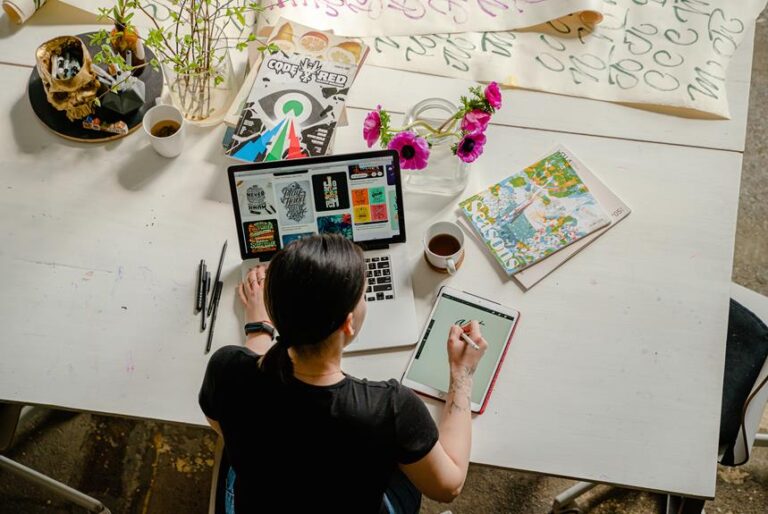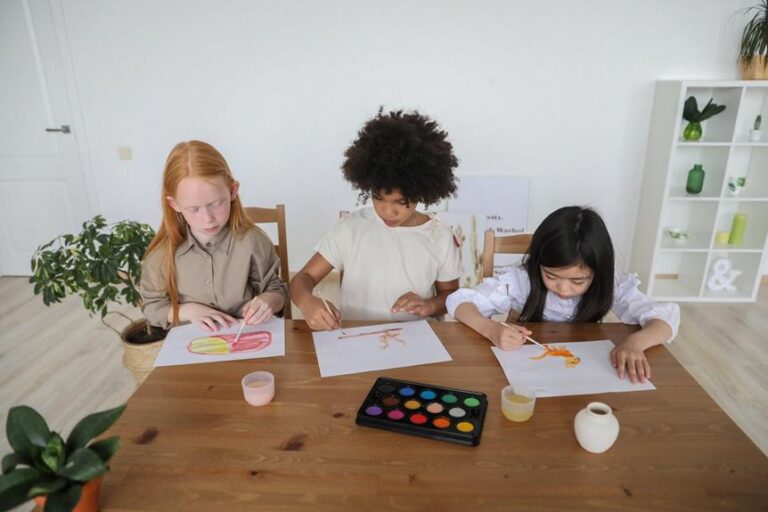Kickstarting Your Journey Towards a Zero Waste Living
Are you tired of seeing our planet suffocating under piles of waste? We’ve all been there. But here’s the good news: together, we can make a difference. Imagine this – one person decides to reduce their waste and inspires their friends and family to do the same. Soon, their entire community is on board, working towards a zero waste living.
In this article, we’ll show you how to kickstart your journey towards a zero waste lifestyle and be part of a movement that’s saving the planet.
Assessing Your Current Waste Habits
Let’s take a moment to assess our current waste habits and identify areas where we can make improvements on our journey towards a zero waste lifestyle. Conducting a waste audit is a great way to start.
Begin by examining your daily activities and the waste they generate. Look for patterns and areas where you can reduce, reuse, or recycle. This assessment will help you understand your waste generation and its impact on the environment.
Once you have identified problem areas, it’s time to create an action plan. Set specific goals and make a commitment to change. Start small by focusing on one aspect at a time, such as reducing single-use plastic or composting organic waste.
Setting Goals for Reducing Waste
Now that we’ve assessed our current waste habits, it’s time to set goals for reducing waste in our everyday lives. By starting small and making simple changes, we can have a big impact on our overall waste production.
It’s important to track our progress effectively to stay motivated and see the positive changes we’re making. Additionally, exploring sustainable alternatives for consumption can help us reduce waste even further and live a more eco-friendly lifestyle.
Starting Small, Big Impact
We can make a big impact on reducing waste by starting small and setting achievable goals. It’s easy to feel overwhelmed when thinking about the environmental impact of our daily actions. However, by making small changes in our habits and setting realistic goals, we can significantly contribute to a more sustainable future.
Here are four simple yet effective ways to get started:
- Reduce single-use plastics: Swap disposable water bottles for a reusable one and bring your own shopping bags.
- Compost food waste: Start a compost bin or find a community composting program to divert organic waste from landfills.
- Embrace reusable alternatives: Choose reusable coffee cups, utensils, and cloth napkins over their single-use counterparts.
- Buy in bulk and avoid excessive packaging: Purchase items with minimal packaging or in bulk to reduce the amount of waste generated.
Tracking Progress Effectively
To effectively track our progress in reducing waste, we need to set clear and measurable goals. By establishing specific targets, we can monitor our efforts and stay motivated on our journey towards a zero waste living.
To do this, we can employ effective strategies and tracking tools. One strategy is to start small and gradually increase our goals over time. This allows us to build momentum and make lasting changes.
Another strategy is to use tracking tools such as waste journals or mobile apps to record our waste reduction progress. These tools can help us identify areas where we can improve and provide a visual representation of our achievements.
Sustainable Alternatives for Consumption
By incorporating sustainable alternatives for consumption, we can establish clear goals for reducing waste and continue making progress towards a zero waste living. Here are four sustainable alternatives that can help us achieve our waste reduction goals:
- Sustainable Fashion: Opt for clothing made from organic, recycled, or upcycled materials. Choose brands that prioritize ethical and sustainable practices, such as fair trade and responsible sourcing.
- Eco-Friendly Cleaning: Swap conventional cleaning products for environmentally-friendly alternatives. Look for products that are free from harsh chemicals and packaged in recyclable or refillable containers. DIY cleaning solutions using natural ingredients like vinegar and baking soda are also a great option.
- Minimalist Living: Embrace a minimalist lifestyle by decluttering and only purchasing what you truly need. By reducing our consumption, we can minimize waste and contribute to a more sustainable future.
- Bulk Buying and Reusable Packaging: Purchase items in bulk to reduce packaging waste. Bring your own reusable bags, containers, and water bottles when shopping to avoid single-use plastics.
Adopting Reusable Alternatives
Transitioning to reusable alternatives is a crucial step in our journey towards a zero waste living. By replacing disposable items with reusable ones, such as utensils and cloth diapers, we can significantly reduce our environmental impact.
Reusable utensils, such as bamboo or stainless steel cutlery, aren’t only durable and long-lasting, but they also eliminate the need for single-use plastic utensils, which often end up in landfills or oceans.
Similarly, cloth diapers are a sustainable alternative to disposable diapers, reducing waste and saving money in the long run. With advancements in design and materials, cloth diapers are now more convenient and easy to use than ever before.
Recycling and Composting Effectively
When it comes to recycling and composting effectively, one of the key points is sorting waste correctly. By ensuring that we separate our recyclables from our non-recyclables, we can maximize the amount of materials that can be reused or repurposed.
Additionally, composting offers numerous benefits, such as reducing methane emissions and creating nutrient-rich soil for gardening.
Lastly, it’s important to address common misconceptions about recycling, such as the belief that all plastic items can be recycled. By understanding and implementing these points, we can make a significant impact in our journey towards a zero waste living.
Sorting Waste Correctly
As we embark on our journey towards a zero waste living, it’s crucial to understand the importance of sorting waste correctly, ensuring effective recycling and composting practices.
By sorting our waste correctly, we can significantly reduce plastic pollution and contribute to better waste management. Here are four key tips to help us sort our waste effectively:
- Educate ourselves: Learn about what can and can’t be recycled or composted in our local area. Each municipality may have different guidelines, so it’s essential to stay informed.
- Use separate bins: Have designated bins for different types of waste, such as paper, plastic, glass, and organic waste. This makes it easier to sort our waste correctly.
- Rinse and clean: Before recycling, make sure to rinse out containers and remove any food residue. This helps prevent contamination and ensures that the recycling process is more efficient.
- Reduce and reuse: The best way to manage waste is to generate less of it. Look for ways to reduce, reuse, and repurpose items before considering recycling or composting.
By following these simple steps, we can make a significant impact on reducing plastic pollution and improving waste management. Together, let’s take responsibility for our waste and create a cleaner, more sustainable future.
Benefits of Composting
One of the key benefits of composting is that it allows us to divert organic waste from landfills and instead turn it into nutrient-rich soil. Composting benefits not only the environment but also our gardens and plants. By composting, we can reduce the amount of waste that ends up in landfills, where it contributes to greenhouse gas emissions.
Instead, we can recycle and compost effectively by creating our own compost piles or bins. Composting techniques involve combining brown materials like leaves and twigs with green materials like fruit and vegetable scraps. By maintaining the right balance of these materials, along with moisture and oxygen, we can speed up the decomposition process.
This results in a dark, crumbly compost that enriches the soil, improves its structure, and promotes healthy plant growth. So let’s start composting today and reap the benefits for ourselves and the planet.
Recycling Common Misconceptions
Now that we understand the benefits of composting, let’s address some common misconceptions about recycling and composting effectively. It’s important to debunk these recycling myths so that we can make informed choices and truly make a positive impact on the environment.
Here are four common misconceptions about recycling:
Myth: All plastics can be recycled.
Reality: Not all plastics are created equal. While some can be recycled, others cannot. Check the recycling guidelines in your area to see which types of plastics are accepted.
Myth: Recycling is a waste of time because everything ends up in the landfill anyway.
Reality: Recycling plays a crucial role in reducing waste and conserving resources. It’s important to recycle properly to ensure that materials are processed and reused.
Myth: Composting is too complicated and time-consuming.
Reality: Composting can be simple and rewarding. With the right knowledge and tools, anyone can successfully compost at home.
Myth: Recycling isn’t worth the effort because it doesn’t make a significant difference.
Reality: Recycling is an essential part of the waste management process. By recycling, we conserve resources, reduce pollution, and decrease the need for new materials.
Let’s debunk these myths and continue on our journey towards a zero waste living. Together, we can make a difference.
Minimizing Food Waste
To reduce food waste, we can implement a simple yet effective strategy. By focusing on proper food storage and meal planning, we can significantly minimize waste in our kitchens.
When it comes to food storage, it’s important to understand the best ways to prolong the freshness of our groceries. Investing in airtight containers and utilizing the refrigerator and freezer properly can help extend the shelf life of our food.
Additionally, practicing meal planning can greatly reduce the likelihood of food going to waste. By creating a weekly meal plan and shopping accordingly, we can avoid buying excess ingredients that may end up unused. This not only saves money but also ensures that we use up all the food we purchase, contributing to a more sustainable and zero waste living.
Shopping Smart and Packaging-Free
When it comes to shopping smart and packaging-free, we continue to prioritize reducing waste and making sustainable choices in our everyday lives. Here are four ways you can incorporate these principles into your shopping routine:
- Bulk shopping: By purchasing items in bulk, you can reduce packaging waste significantly. Bring your own reusable containers or bags to the store and fill them with grains, nuts, spices, and other pantry staples. This not only reduces waste but also saves money in the long run.
- Sustainable fashion: Consider buying clothes from sustainable fashion brands that prioritize ethical production, use eco-friendly materials, and promote fair labor practices. Look for certifications like GOTS (Global Organic Textile Standard) or Fair Trade to ensure your clothing choices align with your values.
- Reusable bags and containers: Always carry reusable bags when shopping to avoid using single-use plastic bags. Additionally, bring your own containers for meat, cheese, and other deli items to reduce plastic waste. Many stores offer the option to use your own containers, so take advantage of this eco-friendly alternative.
- Shop local: Support local farmers markets and shops that prioritize sustainable practices. By buying locally, you can reduce the carbon footprint associated with transportation and packaging. Plus, you’ll be supporting your community and fostering a sense of belonging.
Reducing Single-Use Plastics
Building on our commitment to reducing waste and making sustainable choices, let’s now delve into the important topic of minimizing single-use plastics.
As we strive towards a zero waste lifestyle, it’s crucial to address the issue of plastic waste, which poses a significant threat to our environment.
One effective way to reduce single-use plastics is by opting for sustainable packaging. Look for products that come in eco-friendly alternatives such as biodegradable or compostable packaging.
Additionally, let’s promote the use of reusable items like water bottles, coffee cups, and shopping bags. By choosing to invest in durable and reusable products, we can significantly minimize our reliance on single-use plastics.
Together, we can make a difference and create a more sustainable future for generations to come.
Engaging in Community and Advocacy Efforts
Let’s actively participate in community initiatives and advocacy efforts to drive the zero waste movement forward. Engaging in community and advocacy efforts is vital for creating lasting change and building a strong network of like-minded individuals. Here are four ways to get involved:
- Join local zero waste groups: Connect with others who share your passion for reducing waste. Attend meetings, workshops, and events to learn from experts and exchange ideas with fellow community members.
- Support grassroots movements: Get behind grassroots efforts that champion zero waste initiatives. Whether it’s signing petitions, attending rallies, or spreading awareness through social media, every action counts.
- Collaborate with local businesses: Engage with local businesses to encourage sustainable practices. Share information about zero waste alternatives and help them implement eco-friendly solutions.
- Educate and inspire: Use your knowledge and experiences to educate others about the benefits of a zero waste lifestyle. Organize talks, workshops, or webinars to inspire people to take action and make sustainable choices.
By actively engaging in community and advocacy efforts, we can create a powerful collective force that drives the zero waste movement forward and creates a more sustainable future for all.
Let’s make a difference together!
Final Thought
By assessing our current waste habits, setting goals for reducing waste, adopting reusable alternatives, recycling and composting effectively, minimizing food waste, shopping smart and packaging-free, and reducing single-use plastics, we can kickstart our journey towards a zero waste lifestyle.
Let’s join hands in engaging with our community and advocating for a sustainable future. Together, we’ve the power to make a lasting impact on the planet and create a cleaner, greener world for generations to come.
Take the first step today and be the change we wish to see.

